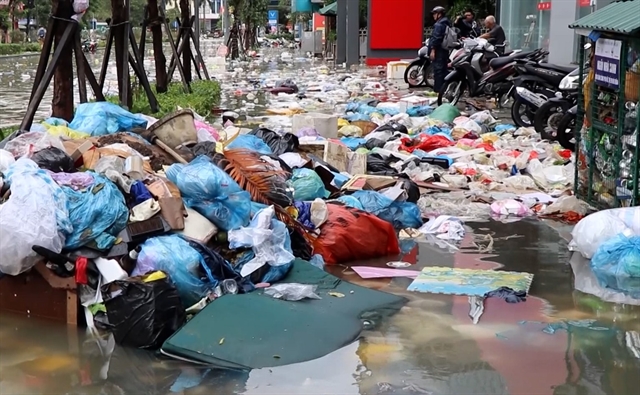 Economy
Economy

The coronavirus outbreak has affected the country’s economy, with production for exports and services suffering the most.

|
| Almost all bookings from China and Korea to Hội An and Quảng Nam Province were cancelled. – Photo thanhnien.vn |
HCM CITY – The coronavirus outbreak has affected the country’s economy, with production for exports and services suffering the most.
The tourism and service industry in Đà Nẵng, one of the cities attracting the most foreign tourists, is expected to suffer losses of up to VNĐ700 billion (US$30.4 million) due to the slump in tourism in the two months since the novel coronavirus (Covid-19) epidemic began.
The city tourism association said the epidemic would cause a 31 per cent drop in the number of tourists visiting the city in the first quarter of this year and a 20.7 per cent decrease in revenues.
Seventy per cent of tours and room bookings from Korea and China, two of the biggest markets, were cancelled in February, causing a revenue loss of $213 million.
Lê Hữu Nghĩa, general director of Lê Thành Construction and Trading Company, said his company’s hotel chain saw 95 per cent cancellations, and rooms are now booked only by businesses and almost none by tourists.
Among the millions of international tourists that Việt Nam receives every year, China, South Korea and Japan account for nearly 80 per cent, and so the epidemic in these countries has inevitably caused the number of tourists to plummet, he said.
The chairman of the city tourism association, Cao Trí Dũng, said the association has submitted a proposal to the city on supportive measures for the industry.
It would host a major promotion campaign in foreign markets in the second quarter, including in Russia, India and Australia, and prepare for reviving tours from China, Japan and Korea after the epidemic ceases, he said.
In Hội An, the number of people buying tickets at popular destinations like the old quarter, Thanh Hà pottery village and Trà Quế vegetable garden fell sharply in February.
The city’s culture and information centre said the number of foreign tourists visiting the old quarter in February was down by 70 per cent from January, while other destinations suffered a 50 per cent fall.
According to statistics from the Civil Aviation Authority of Việt Nam (CAAV), Vietnamese airlines carried 3.7 million passengers in February, a drop of 13.7 per cent year-on-year. The number of international passengers fell by 39.5 per cent to 870,000 while the number of domestic passengers reduced by 0.7 per cent to 2.8 million.
Vietnam Airlines reported that it had to cancel 1,000 flights to and from China in February and the resultant loss was around VNĐ250 billion (US$10.7 million) a week.
It reported a decline of around 50 per cent in the total number of passengers, and a 70-80 per cent fall in numbers from Northeast Asia.
The CAAV’s statistics revealed a drop of 11.6 per cent in the number of arrivals and departures at airports in February to 8.1 million. Of the figure, foreign passengers accounted for 2.4 million, down 29.8 per cent. Domestic passenger numbers decreased by 0.7 per cent to 5.7 million.
The CAAV said the aviation market saw a double-digit decrease after many years of strong growth.
Chu Tiến Dũng, chairman of the HCM City Union of Business Associations (HUBA), said urgent support is needed from the government to help the tourism industry in various key provinces and cities.
He suggested measures such as reducing and delaying tax for businesses.
Businesses still have to repay their bank loans and taxes, but revenues from tours and service are declining, he said.
“Banks should consider extending the loan interest payment period for travel businesses, while authorities could defer collection of income tax, value added tax, and land lease and fees for use.”
However, not all sectors have been negatively affected by Covid-19: the food industry, for instance, saw growth as people stocked up on food amid the Covid-19 epidemic.
Many food processing enterprises are in fact requiring to increase production to meet the surge in demand both domestically and in export markets.
According to Acecook JSC Company, one of the leading foodstuff companies in the country, the company has increased its production to around three billion packs of noodles a year.
As for exports, Mai Hoài Anh, executive director, international business, Vinamilk JSC, said after attending the Gulfood Dubai Fair last month the company signed deals to export milk and milk products worth US$20 million.
Lý Kim Chi, chairwoman of the city Food and Foodstuff Association, said most food processing companies have increased their production to meet the new orders.
Vietnamese businesses have the advantage of having abundant raw materials, with 90 per cent of them being domestically sourced. – VNS




.jpg)